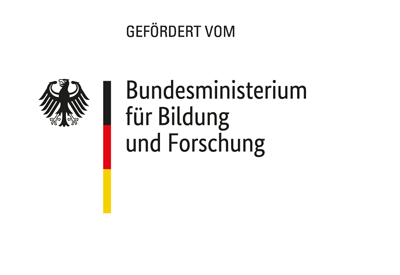Digital ecosystem for a sustainable circular economy in the automotive industry (DIONA)
The DIONA research project pursues the goal of using a multidisciplinary approach to develop a digital hub for the circular economy for stakeholders from science, business, associations, social partners and committees, and thus to enable SMEs in particular to participate in circular value creation.

Federal Ministry of Education and Research (BMBF)
Planetary boundaries are challenging linear production and the pressure for transformation is increasing. Through the estimated 1.5 degree target and the Sustainable Development Goals of the United Nations, comprehensive benchmarks for the evaluation of sustainable policies exist today. Germany's contribution is to be ensured through climate neutrality in 2045, although various actors are questioning the efforts made to date with regard to the ambitions set. The German automotive industry as well as the transport sector as a whole are key issues and areas for action. On the way to a possible fulfillment of the governmental sustainability claims, it thus seems essential to understand the production processes in the automotive industry holistically, to refer to existing knowledge on the circular economy and to make gained insights accessible to stakeholders.
The multidisciplinary joint project "Digital Ecosystem for a Sustainable Circular Economy in the Automotive Industry" (DIONA) from computer science, social sciences and economics aims to develop a so-called digital hub, which will act as a contact point and innovation center for stakeholders from science, industry, associations, social partners and committees on various issues of circular value creation. The project is part of the funding measure "Towards sustainable mobility through circular value creation (MobilKreis)" in the BMBF's "Future of Value Creation Research on Production, Services and Work" program.
DIONA implements a holistic approach consisting of the four work areas "Design Fields Circular Economy", "Transfer, Networking and MobilKreis Digital Hub", "Toolkits Circular Economy" and "Cyber-physical Laboratories" with the aim of enabling SMEs in particular to participate in circular value creation beyond the project duration.
- Chair of Industrial Information Management, TU Dortmund University - IIM
- Department of IT in Production and Logistics, TU Dortmund - ITPL
- Fraunhofer Institute for Software and Systems Engineering, Dortmund - ISST
- Chair of Business Informatics - Business Process and Information Management, TU Chemnitz- WI
- Chair of Alternative Vehicle Drives, TU Chemnitz - ALF
Associated partners:
- Mittelstand-Digital Zentrum Dortmund
- Mittelstand-Digital Center Chemnitz
- Center for Entrepreneurship & Transfer, TU Dortmund University - CET
- Building a comprehensive understanding of the concept of sustainability.
- Highlighting socio-technical implications for the adaptation of a sustainable circular economy.
- Analysis of end-to-end digitalization in closed value cycles.
- Establishment of the MobilKreis Digital Hub based on regular events, active networking, generation of scientific outreach and transfer of results.
- Development of a method and tool kit based on a meta-study to design recommendations for action for sustainable value creation.
- Operation of open, cyber-physical testing and experimentation spaces in which collaborative projects can independently simulate and validate solutions and approaches.
The contribution of the Sociology of Technology research area of the Social Research Center Dortmund (TU Dortmund) to the project consortium is initially to conduct a qualitative survey on existing understandings of sustainability within the automotive industry. In a later phase, the research area Sociology of Technology will take over, for example, the accompanying scientific research of the cyber-physical test rooms, whereby the theoretical insights gained in the area of circular economy will be complemented by findings from experimental practice.




![[Translate to English:] [Translate to English:]](/storages/zentraler_bilderpool/_processed_/a/f/csm_Kontakt_b86e8d8ecc.png)
![[Translate to English:] [Translate to English:]](/storages/sfs-sowi/_processed_/6/c/csm_Glasfront_sfs_Header_eae6d325d3.jpg)